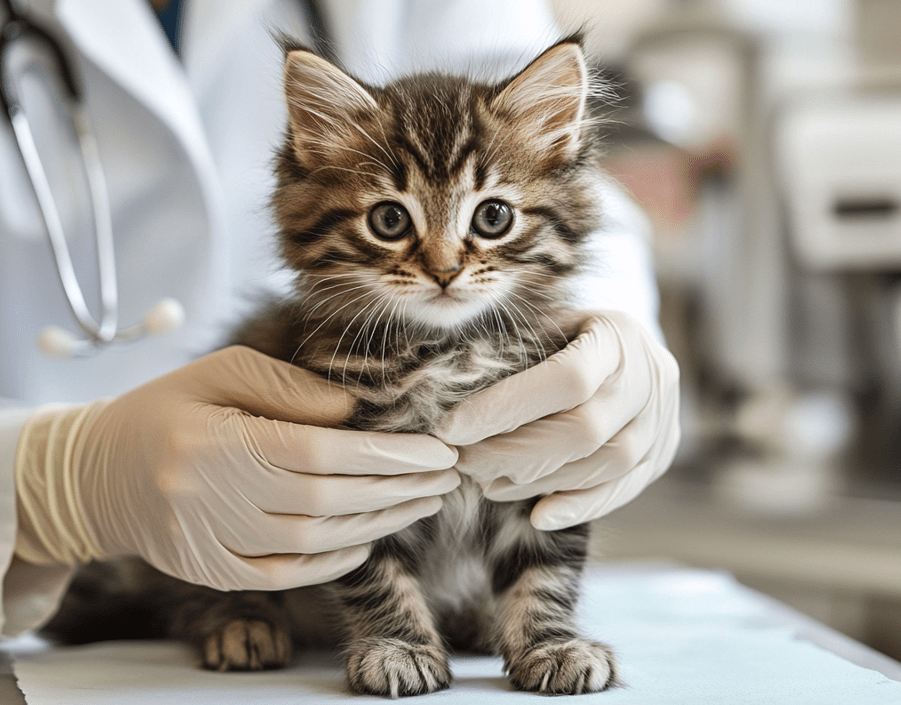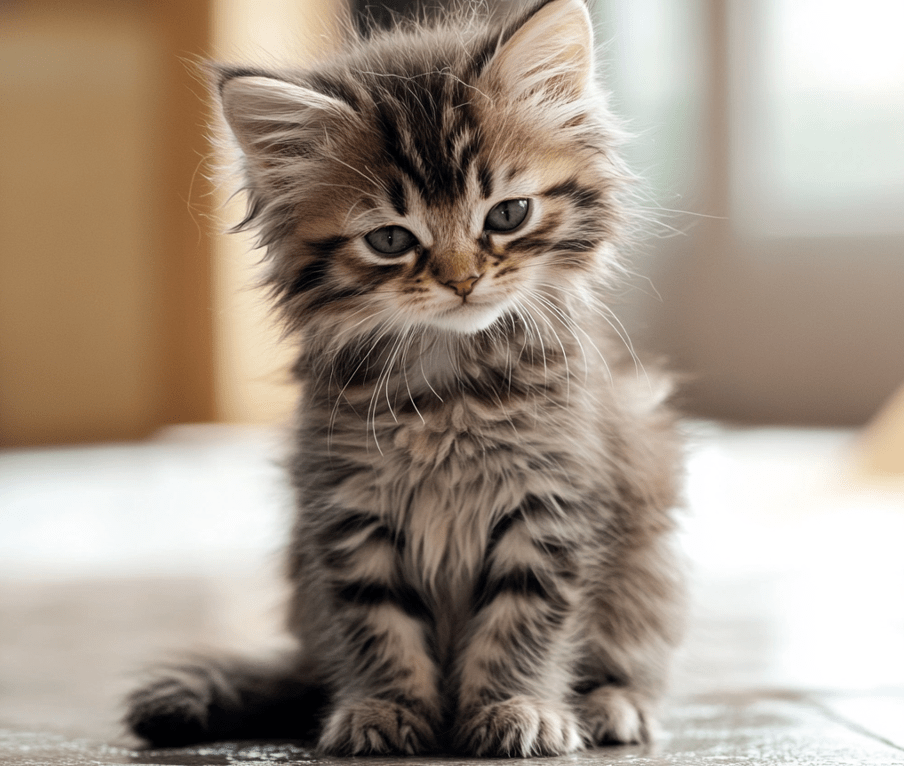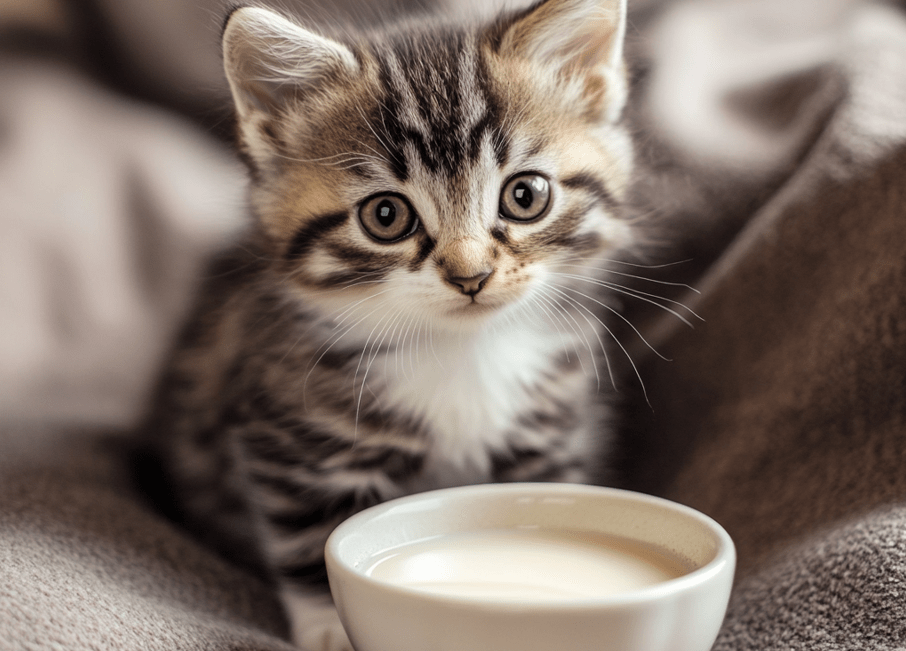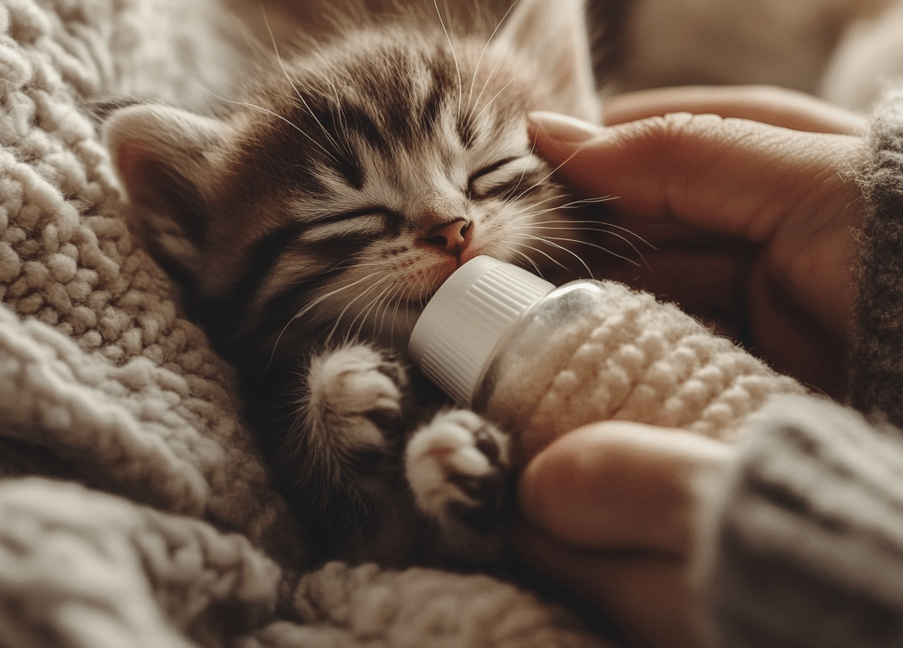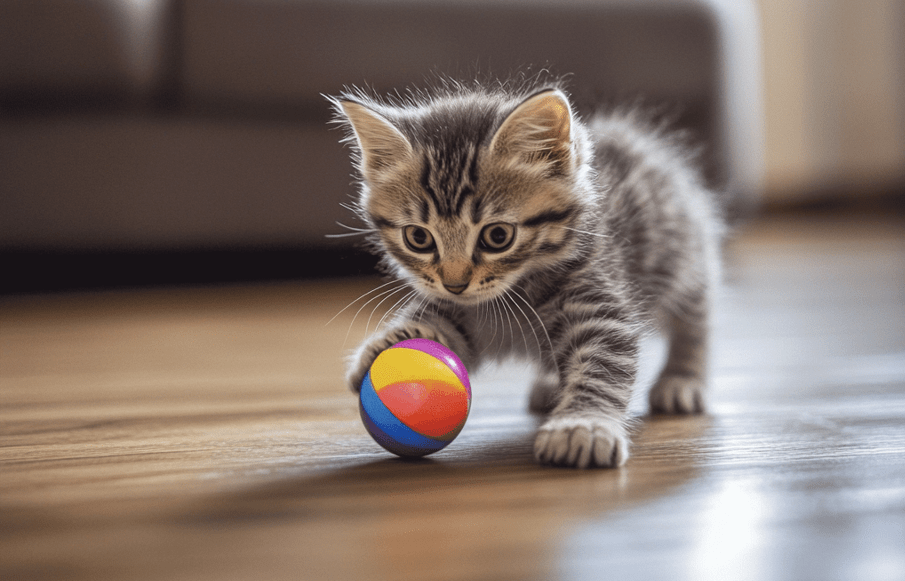
The arrival of a new kitten to your home is something wonderful that will make the atmosphere full of energy and happiness. Their playfulness and curiosity can fill any room with joy. But there may come a time when you realize that your cute companion is no longer her mischievous self. If your kitten does not want to eat for a couple of days and is using the litter box less than usual, he might be suffering from constipation. Knowing what you need to know about this disease can be a lifesaver feline.
To watch the summary of this article, just watch this video-
Understanding Kitten Constipation
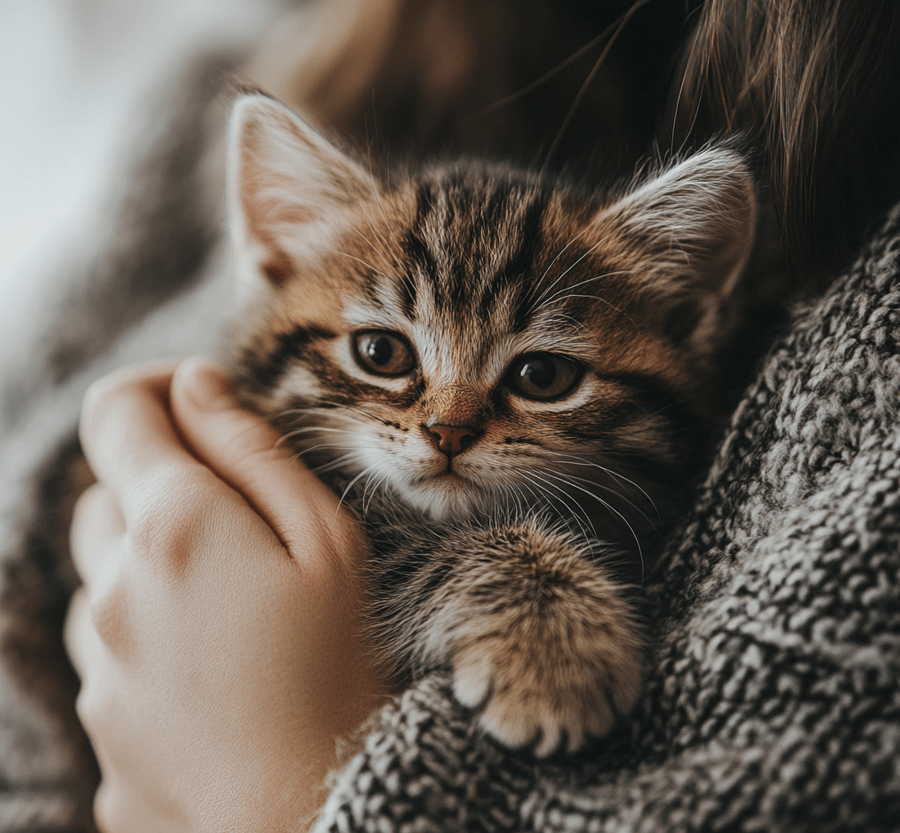
When a kitten is constipated it means they are having trouble pooping — much like with people. This presentation can be severe, in some cases causing a lot of pain and if untreated for more than 48hrs will become complicated or even life-threatening. Early diagnosis and management of constipation can be very helpful in the overall health of your kitten.
Symptom of Kitten Constipation
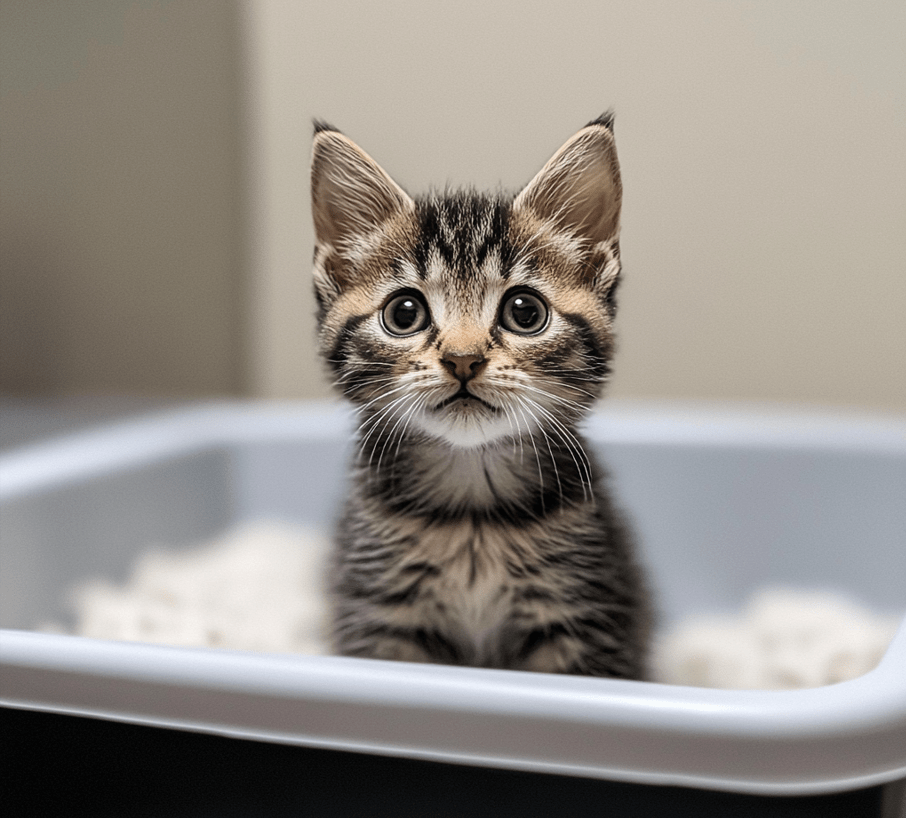
Some of the symptoms you might notice when your kitten is constipated would vary on an individual basis but, there are several common signs that everyone should look for:
Lack of Faeces: When 24 to 48 hours pass without your kitten producing any faeces, something is wrong and it might even suffer from constipation.
Straining During Defecation: Almost always you will see your kitten going in and out of a litter box so many times within the same day squeezing his body to defecate better meanwhile nothing comes. In a worst-case scenario for your kitten, they may even struggle to pass small hard stools which can be painful and distressing.
Poor Appetite: If you see your kitten not interested in eating food at all, it is another terrible sign. If a dog who was once very excited to eat its food is now apathetic, this could indicate that it is in poor health.
Lethargy: Kittens are supposed to be excited and playful, if you find your kitten sleeping more than usual or uninterested in playtime this could be a symptom of any number of health issues including constipation.
Bloating or Throwing Up: If you notice that your kitten has a visible swollen belly, and throws up from time to time it could also be hints of constipation in kittens. They could signal a more serious underlying condition, so it’s important to see your vet if you observe them.
Early recognition of these signs can be quite helpful in saving your kittens from life-threatening ailments. If you think that a kitten is constipated it is really important to seek advice from your vet quickly as there are treatments available to keep him comfortable and healthy.
What Causes Constipation in kittens
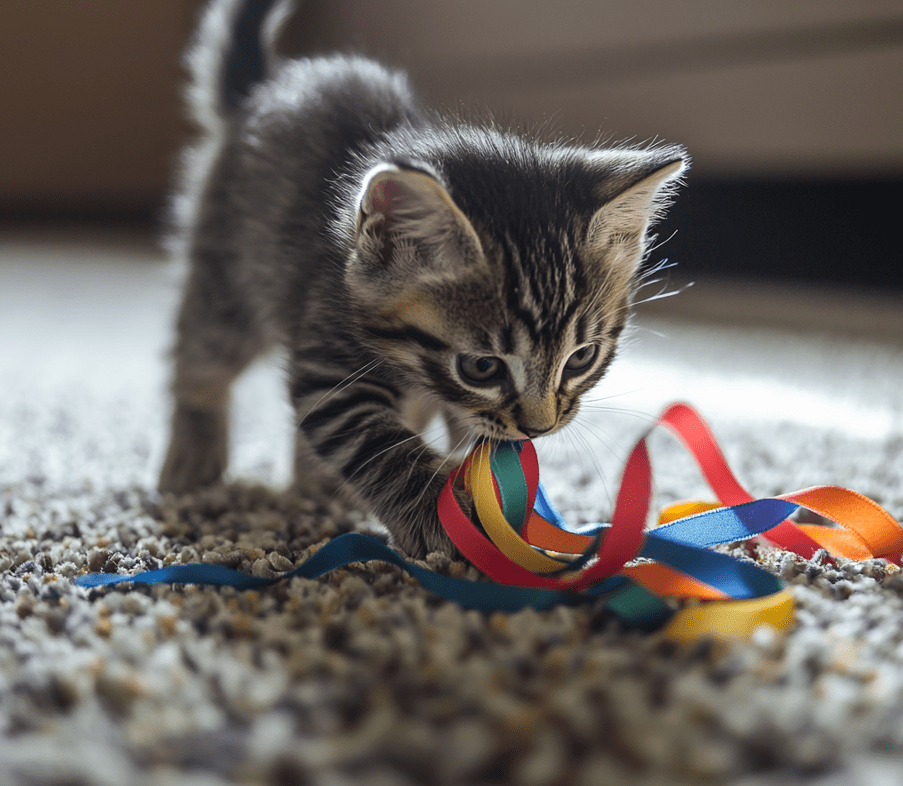
There are a number of reasons why kittens might become constipated and different things can affect their digestive health in various ways. Knowing about these causes is very important so that you can keep your fluffy companion fine. There are so many reasons for that.
Dehydration: similar as in humans, hydration is very essential for proper functioning of the digestive system in kittens. If a kitten is not getting enough water, its body will suck too much fluid from the waste in its intestines and lead to stools that are hard and dry. This may lead to pain and strain during the process of defecation making it difficult resulting in constipation.
Eating Non-Digestible Objects: This is normal for kittens, who tend to be very playful and will try to ingest many non-digester items. The most likely suspects are ribbon, twine ties or small toys. When these objects are ingested, they can cause blockages in the digestive tract leading to irregularity, chronic constipation etc.
Inadequate Defecation Stimulation: For kittens who are not yet weaned, a kitten does require more stimulation in order to defecate. When the mother is not around, a kitten might be somewhat reluctant to take some time out to use their litter box. The lack of this stimulation can cause feces to enhance in the intestines, leading to constipation and possible pain.
Most Common Intestinal Parasites: Heavy infestations of intestinal parasites such as worms can affect the digestive function in kittens. In some cases, these parasites can cause infection and other conditions that may lead to constipation by interfering with proper colon function.
Neurological and Other Medical Conditions: There are several neurological disorders that can affect the lower body, making it difficult for a kitten to defecate. Significant health considerations of the nerves or muscles that control defecation can sentence constipation, demanding medical intervention for a pronounced diagnosis and fitting therapy.
Pet owners, in recognizing these potential causes of constipation for your kitten can take steps that ensure fecal them and keep healthy. With that out of the way, let us now examine some effective ways to treat constipation and maintain good gut health in our faithful four-legged friends.
Dealing with Kitten Constipation
If a kitten is still responsive and eating, there are several home remedies that can help to alleviate their constipation. On the other hand, if they continue for more than 48 hours or you see your small cat is sleeping much and not eating as usual.
One such example would be at the veterinary clinic where treatments may include fluid injections, enemas or x-rays to find potential blockages. In cases of constipation in the cat and older cats help will be needed from your veterinarian who may manually extract impacted feces or perform surgery.
Kitten Home Remedies for Constipation
The last thing you want is to compromise the health and well-being of your kitten. In case you see initial symptoms of constipation then here are some home remedies before rushing to the vet.
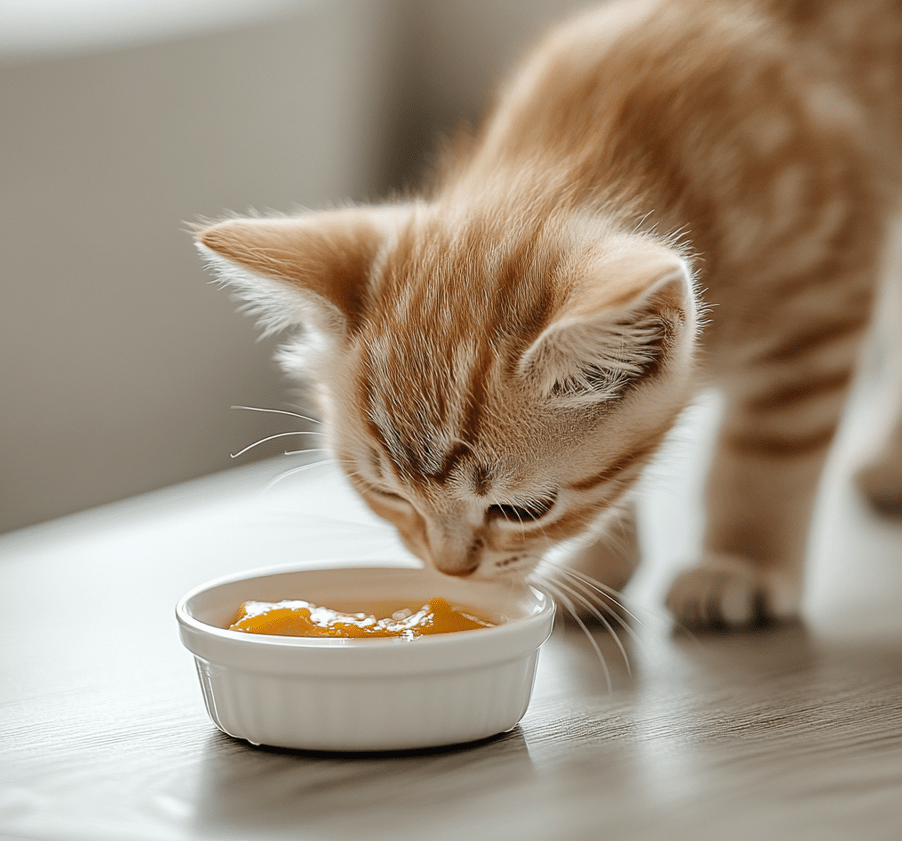
Stay Well Hydrated: Good hydration is important to prevent constipation. Make sure that you are filling the dish with fresh water on a daily basis. If your kitten mostly consumes dry food, you might want to consider adding some water (or other liquid) to it.
Add Some Fiber to Your Diet: A little fiber is good for constipation relief. You could seize a scoop of regular canned pumpkin and add it to their food. You should promptly consult a fetus or treat midwife and discover several excellent keep in mind factors to talk about including them with your pet’s diet plan. This kitten food is also included as a source of FOS, a natural prebiotic that supports healthy digestion.
Promote Physical Exercise: As physical movement can awaken bowls in kittens. Keep your kitten active by providing enjoyable play opportunities.
Observe Your Kitten: Keep an eye on your kitten. Contact your veterinarian if the symptoms worsen or do not go away within a day.
Kitten Constipation Recovery and Management
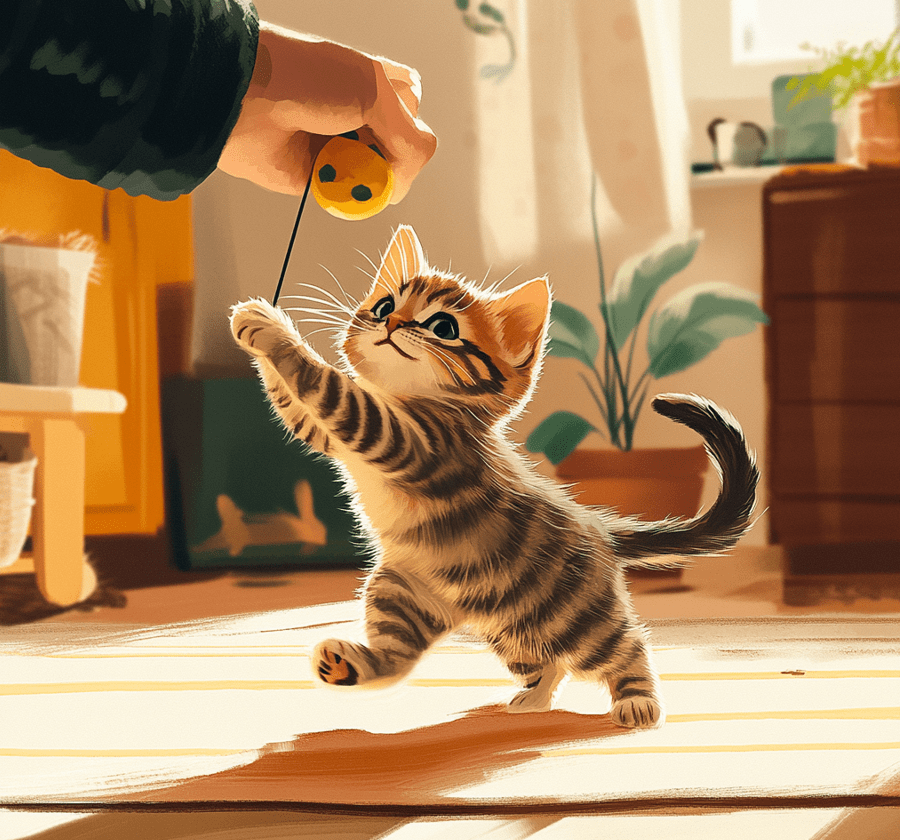
Most of the time, once a blockage is cleared recovery from kitten constipation happens quickly but you want to treat what causes it too if that’s possible so prevent further problems. Always follow the advice of your veterinarian, which may include finishing a prescribed medication protocol as well regular deworming and fecal exams.
Always remember, these are our precious babies and we rely on us for their health. Being aware and identifying the symptoms of constipation in advance is critical because curing it could save your kitten from a severe distress allowing them to prance around his premises with fun.
Please seek the advice of a veterinarian if you have any doubts. With care, and the appropriate remedies your kitten will be back to their normal playful lovable self in no time.

